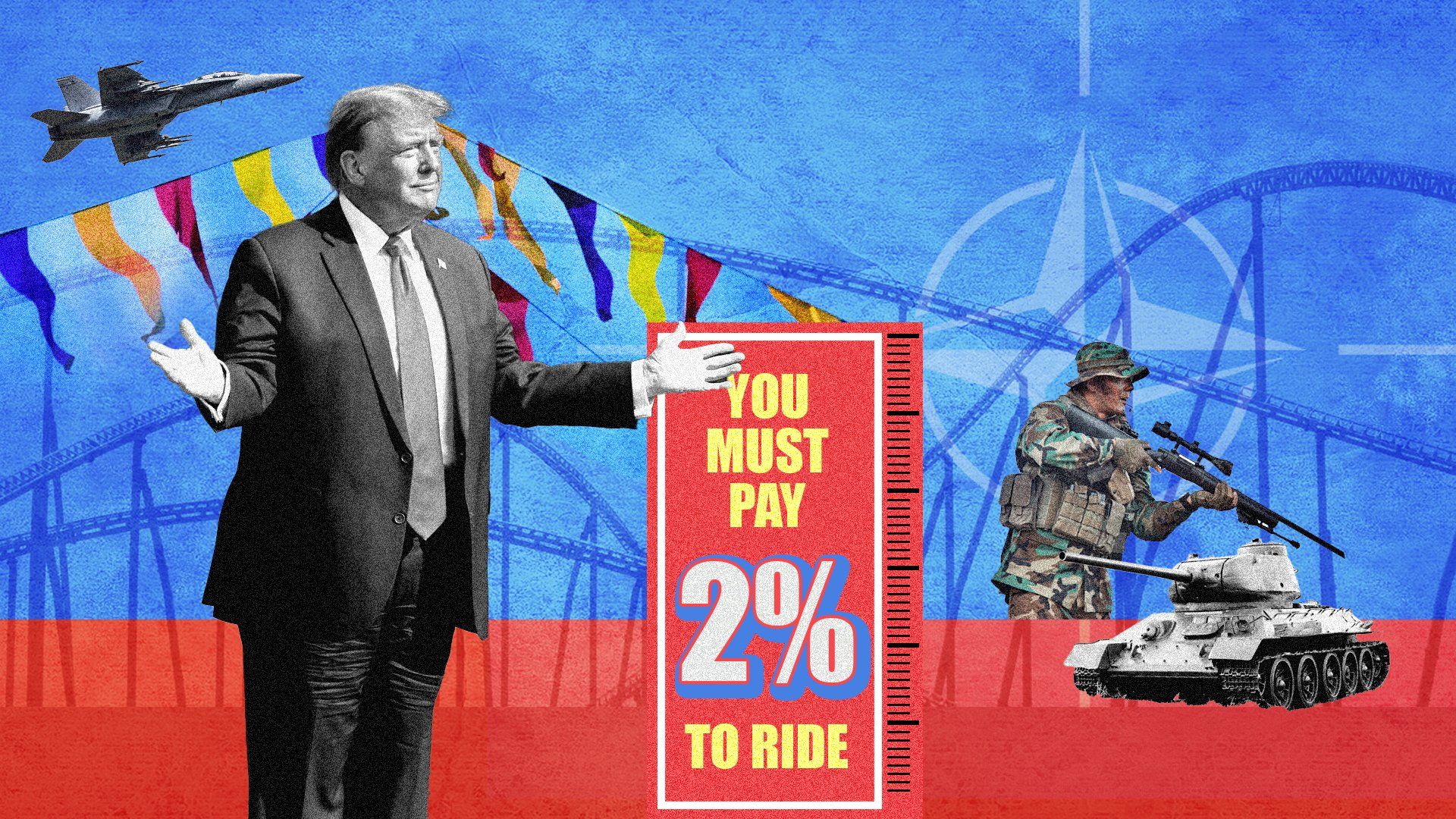February 15, 2024
Members of the Western bloc are on edge after Donald Trump said last weekend that he’d encourage Russia to “do whatever the hell they want” to allied states that don’t pay their dues. Canada pays well below the 2%-of-GDP NATO guideline and would be high on Trump’s “delinquent” list, but that doesn’t mean Ottawa is ready to pay up.
Trump’s comments drew the ire of … just about everyone. President Joe Biden, the chairman of the Joint Chiefs, NATO chief Jens Stoltenberg,German Chancellor Olaf Scholz, and even fellow Republicans blasted Trump for his comments. The most common refrain was that the former US president was undermining the collective security alliance and emboldening Russia.
But Canadian leaders, who are preparing for a possible Trump 2.0, were more cautious with their response. Foreign Affairs Minister Mélanie Joly admitted Canada must “do more” and steered clear of criticizing Trump. Defense Minister Bill Blairalso declined to take a run at the former president.
As Europe spends more on defense, the US has complained for years about Canada’s military spending, which is heading for 1.43% of GDP in 2025 – the highest it’s been in over 12 years. Ottawa’s defense spending is unlikely to rise further anytime soon as the governing Liberals keep an eye on the deficit and debt-to-GDP ratio while struggling to manage the budget ahead of a planned 2025 election.More For You
Walmart is investing $350 billion in US manufacturing. Over two-thirds of the products Walmart buys are made, grown, or assembled in America, like healthy dried fruit from The Ugly Co. The sustainable fruit is sourced directly from fourth-generation farmers in Farmersville, California, and delivered to your neighborhood Walmart shelves. Discover how Walmart's investment is supporting communities and fueling jobs across the nation.
Most Popular
- YouTube
President Trump’s second term has rapidly reshaped global politics, with the US wielding power more aggressively, targeting weaker countries and even allies, Stephen Walt explains on GZERO World.
- YouTube
Ian Bremmer breaks down a sudden and serious transatlantic crisis: President Trump’s insistence that the United States must have sovereignty over Greenland.
- YouTube
It’s been a year since President Trump returned to office. How has the world changed? Stephen Walt joins Ian Bremmer on GZERO World.
© 2025 GZERO Media. All Rights Reserved | A Eurasia Group media company.
